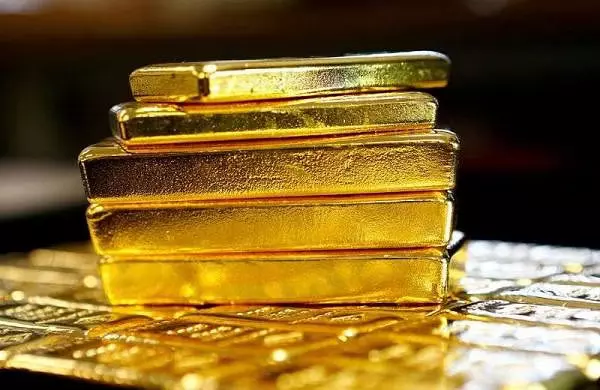

Gold rush for central banks across the world (Photo for representation)
Central banks across the world may continue with the gold buying spree in the coming months. Amid the recent downgrade of the US by Fitch Ratings, the de-dollarisation exercise may further gain momentum. The share of US dollar reserves held as reserves by central banks fell to 58 per cent– the lowest level in 25 years.
According to an International Monetary Fund in a blog, some analysts said that this partly reflects the declining role of the US dollar in the global economy, in the face of competition from other currencies used by central banks for international transactions.
Though the US dollar continues to dominate the foreign exchange reserve kitties the world over, early signs of divergence marking a shift away from the greenback are visible, JP Morgan analysts said in June.
World Gold Council (WGC) data shows that central banks returned to buying gold in June, increasing their inventories by 55 metric tons after a three-month sales.
Among the buyers, the People’s Bank of China – the Chinese central bank– was the largest. It added 21 tonnes to its gold reserves during June, the eighth consecutive month of purchases. The WGC noted that since the Chinese central bank began reporting increases in November 2022, gold reserves have grown by 165 tonnes – an increase of 8 per cent. Of this 103T has been bought in 2023 alone, making it the largest buyer this year till now. India too features among the top gold buyers.
Other top buyers of gold include Poland Uzbekistan), the Czech Republic and Qatar among others.
The Reserve Bank of India’s (RBI) gold reserves touched 794.64 metric tonnes in fiscal 2023, an increase of nearly 5 per cent over fiscal 2022, when it held 760.42 metric tonnes of gold.
India’s gold reserves, which were less than 600 tonnes 10 years ago, have now risen to about 795 tonnes.
In 2022, the net purchase of the yellow metal by the central banks stood at 1135 tonnes—the highest since 1967.
The IMF also said that the US dollar’s share of global reserves will continue to fall as emerging market and developing economy central banks seek further diversification of the currency composition of their reserves.
“The de-dollarisation exercise is a process, it will not happen immediately. It is bound to take time but the new geopolitical and geo-economic risks have underlined the need for countries to diversify their risks and forex reserves,” an economist with one of the top Indian banks told India Narrative.
The BRICS (Brazil-Russia-India-China-South Africa) block has already indicated that it would look to have a common currency of its own. That apart, several countries including India and China have also pressed the pedal in expanding international trade using their own currencies.
The Fitch move to downgrade the US government could add to the pressure on the greenback. Earlier, the threat of a US default had severely impacted the global economy while denting the image of the dollar. The US government has run a deficit averaging nearly $1 trillion every year since 2001, said the Council on Foreign Relations. The recent downgrade from AAA to AA+ was due to “steady deterioration in standards of governance,” Fitch said.
Fitch also noted that the move to downgrade was not just a result of the latest debt ceiling impasse but “a steady deterioration in standards of governance over the last 20 years” regarding “fiscal and debt matters”, CNN reported.
Also read: Will Russia’s launch of digital ruble step up de-dollarisation drive?
Minister for Electronics and Information Technology Ashwini Vaishnaw said on Friday that the government is…
Renowned human rights activist and political analyst Amjad Ayub Mirza has expressed a strong denunciation…
As was widely expected, the Indian economy grew by 6.5 per cent in real terms…
World No Tobacco Day, marked annually on 31 May, addresses a major public health challenge--the…
Defence Minister Rajnath Singh, addressing officers and sailors onboard India's first indigenous aircraft carrier INS…
The leadership team from the Central Tibetan Administration (CTA) arrived in Tokyo to participate in…